Climate Control
Dispelling Common Myths: Heat Pumps for Climate Control

Fed up with overheating during the summer and shivering through the winter? Search no more! We offer the perfect answer to all your temperature regulation problems.
In this article, we will dispel common myths about heat pumps and reveal the truth behind their efficiency, environmental impact, cost-effectiveness, versatility, noise level, performance in extreme climates, lifespan, energy savings, and installation process.
Get ready to discover the ultimate solution for a comfortable and sustainable home.
Key Takeaways
- Heat pumps are highly efficient and environmentally friendly, reducing energy consumption and greenhouse gas emissions.
- Heat pumps are versatile and cost-effective, providing efficient heating and cooling in various settings.
- Heat pumps have low noise levels and require regular maintenance to ensure optimal performance.
- Heat pumps can be easily integrated with existing HVAC systems, improving energy efficiency and reducing costs.
The Efficiency of Heat Pumps for Climate Control
We have found that using heat pumps for climate control significantly reduces energy consumption.
When it comes to performance comparison, heat pumps outperform traditional heating and cooling systems in terms of energy efficiency. Unlike furnaces and air conditioners that generate heat or cool air, heat pumps transfer heat from one place to another, using minimal energy.
This process enables them to provide both heating and cooling functions, making them versatile and cost-effective solutions for climate control. Heat pumps extract heat from the outside air during winter and release it inside the building, and during summer, they remove heat from the indoor air and release it outside.
The Environmental Impact of Heat Pumps for Climate Control
One key aspect to consider is the environmental impact of using heat pumps for climate control. Heat pumps are known for their energy efficiency, which makes them an environmentally friendly choice for heating and cooling. Unlike traditional heating and cooling systems that rely on burning fossil fuels, heat pumps use electricity to transfer heat from one place to another.
This means that they produce fewer greenhouse gas emissions and contribute less to air pollution. Additionally, heat pumps can also reduce the demand for electricity during peak times, which helps to alleviate strain on the power grid and reduce the need for additional power plants.
The Cost-effectiveness of Heat Pumps for Climate Control
Installing heat pumps for climate control can be a cost-effective solution for homeowners. Not only do heat pumps provide efficient heating and cooling, but they also offer significant energy savings. The installation process is straightforward and can usually be completed within a day by a professional HVAC technician.
Once installed, heat pumps work by transferring heat from the air or ground outside to the inside of your home, providing efficient heating in the winter and cooling in the summer. This process consumes less energy compared to traditional heating and cooling systems, resulting in lower utility bills and long-term cost savings.
With heat pumps, homeowners can enjoy comfortable indoor temperatures while reducing their carbon footprint and saving money.
Now, let’s explore the versatility of heat pumps for climate control.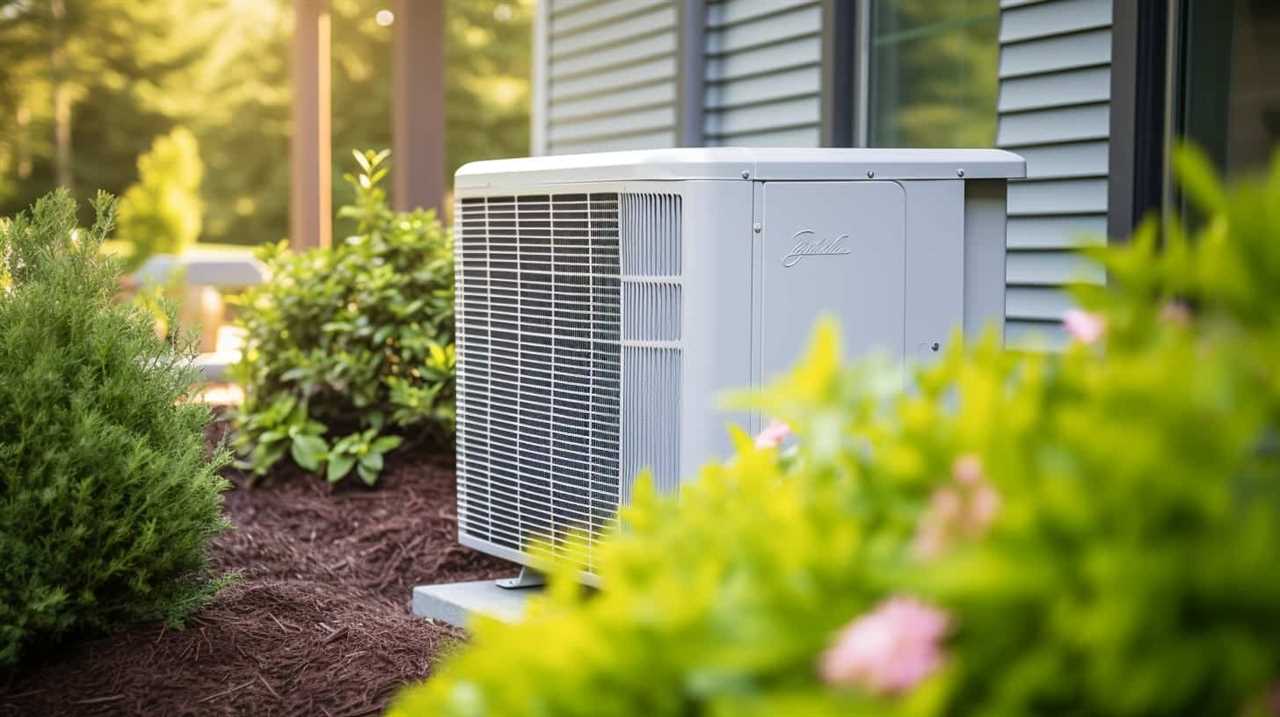
The Versatility of Heat Pumps for Climate Control
While heat pumps are commonly used for heating and cooling homes, they also offer a range of other applications for climate control. The versatility of heat pumps is truly remarkable, as they can be used not only in residential buildings but also in commercial spaces, hospitals, schools, and even industrial settings.
In addition to their ability to provide both heating and cooling, heat pumps can also be used for dehumidifying and ventilating purposes, ensuring optimal indoor air quality.
The performance of heat pumps is equally impressive, as they’re known for their energy efficiency and ability to provide consistent and comfortable temperatures year-round. With advancements in technology, heat pumps are becoming even more versatile and efficient, making them an excellent choice for climate control in a wide range of settings.
The Noise Level of Heat Pumps for Climate Control
We were pleasantly surprised by the low noise level of our heat pump for climate control. Heat pumps have come a long way in terms of noise reduction, making them much more suitable for use in residential settings. Here are some reasons why heat pumps are now quieter than ever:
- Improved compressor technology: Newer heat pumps are equipped with advanced compressors that operate more quietly than older models.
- Soundproofing techniques: Manufacturers have incorporated soundproofing materials and techniques into the design of heat pumps to minimize noise.
- Vibration isolation: Heat pumps are now designed with features that reduce vibrations, which can contribute to noise levels.
- Enhanced fan design: The fans in modern heat pumps are designed for optimal airflow and minimal noise generation.
- Smart control systems: Heat pumps now come with intelligent control systems that adjust fan speeds based on the required heating or cooling load, further reducing noise.
With these noise reduction advancements, heat pumps offer a quiet and peaceful climate control solution for your home.
Now let’s move on to discussing the maintenance requirements of heat pumps for climate control.
The Maintenance Requirements of Heat Pumps for Climate Control
When it comes to maintaining heat pumps for climate control, there are a few essential tasks that should be performed regularly. These include:
- Cleaning or replacing air filters
- Checking and clearing the outdoor unit of debris
- Scheduling professional maintenance at least once a year
Keeping up with these maintenance requirements is crucial for the efficient and effective operation of the heat pump. It can also help prevent costly breakdowns or repairs down the line.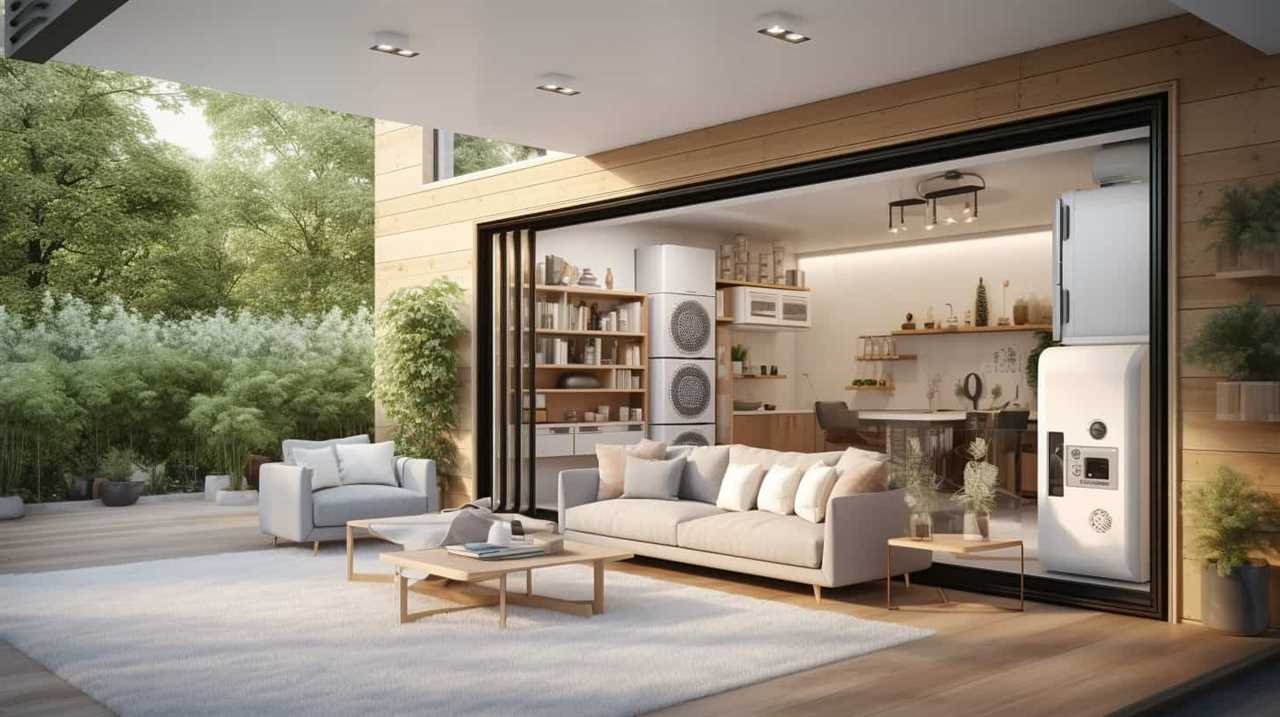
Essential Maintenance Tasks
Regular maintenance tasks are necessary to ensure the optimal performance and longevity of heat pumps for climate control. Here are some essential maintenance tasks that should be included in your maintenance schedule:
Clean or replace air filters: Dirty filters can restrict airflow and reduce efficiency, so they should be cleaned or replaced regularly.
Inspect and clean outdoor unit: Clear away any debris or vegetation that may be blocking airflow to the outdoor unit.
Check refrigerant levels: Low refrigerant levels can indicate a leak, which should be addressed promptly to prevent further damage.
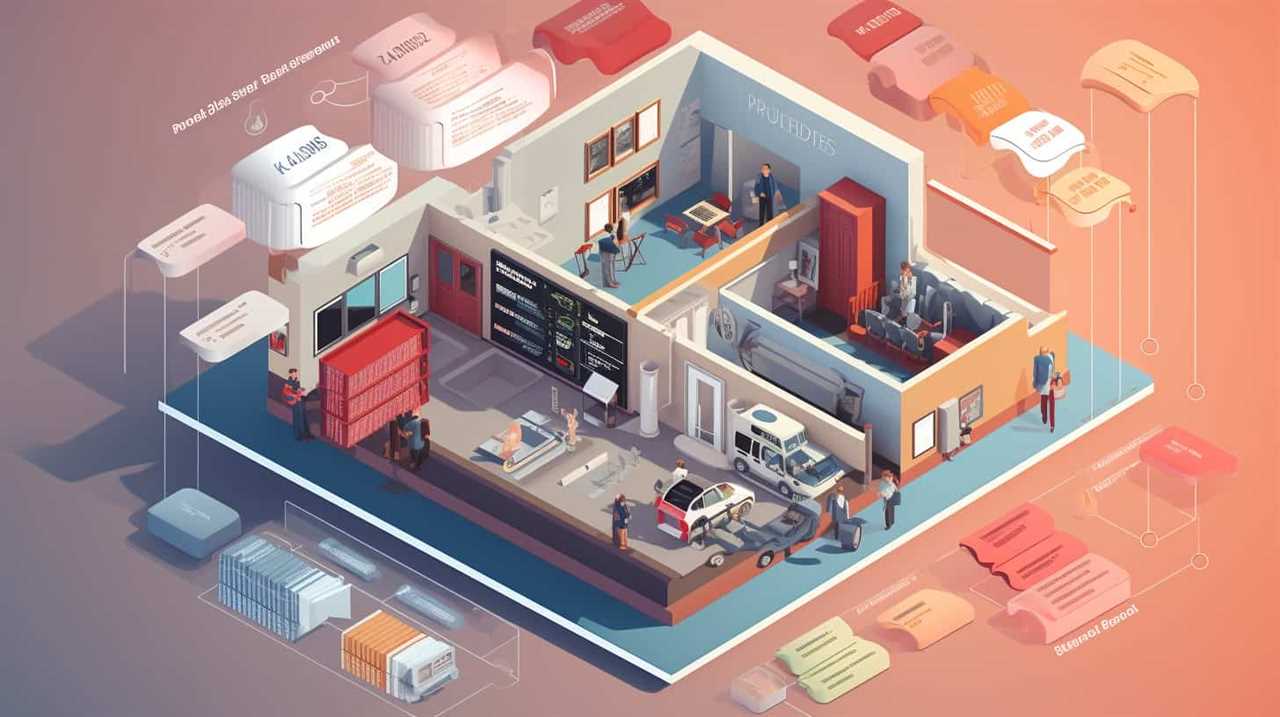
Inspect electrical connections: Loose or faulty electrical connections can cause the heat pump to malfunction, so they should be checked and tightened if necessary.
Schedule professional maintenance: Regular professional maintenance is important to identify any potential issues and ensure that your heat pump is operating at its best.
By following these maintenance tasks, you can keep your heat pump running efficiently and minimize the cost of maintenance.
Now let’s discuss the cost of upkeep in more detail.
Cost of Upkeep
To properly maintain heat pumps for climate control, it’s important to consistently perform the necessary maintenance tasks and regularly schedule professional maintenance. While there are upfront costs associated with the installation of heat pumps, it’s equally important to consider the long-term upkeep expenses and maintenance costs.
The good news is that heat pumps are generally low-maintenance systems, which helps to keep the ongoing expenses in check. Regular maintenance tasks include cleaning or replacing filters, inspecting and cleaning coils, checking refrigerant levels, and ensuring proper airflow. It’s recommended to have a professional technician perform an annual maintenance check to identify any potential issues and ensure optimal performance.
By investing in regular upkeep, you can prolong the lifespan of your heat pump and avoid costly repairs down the line.
Now let’s delve into the compatibility of heat pumps with existing HVAC systems.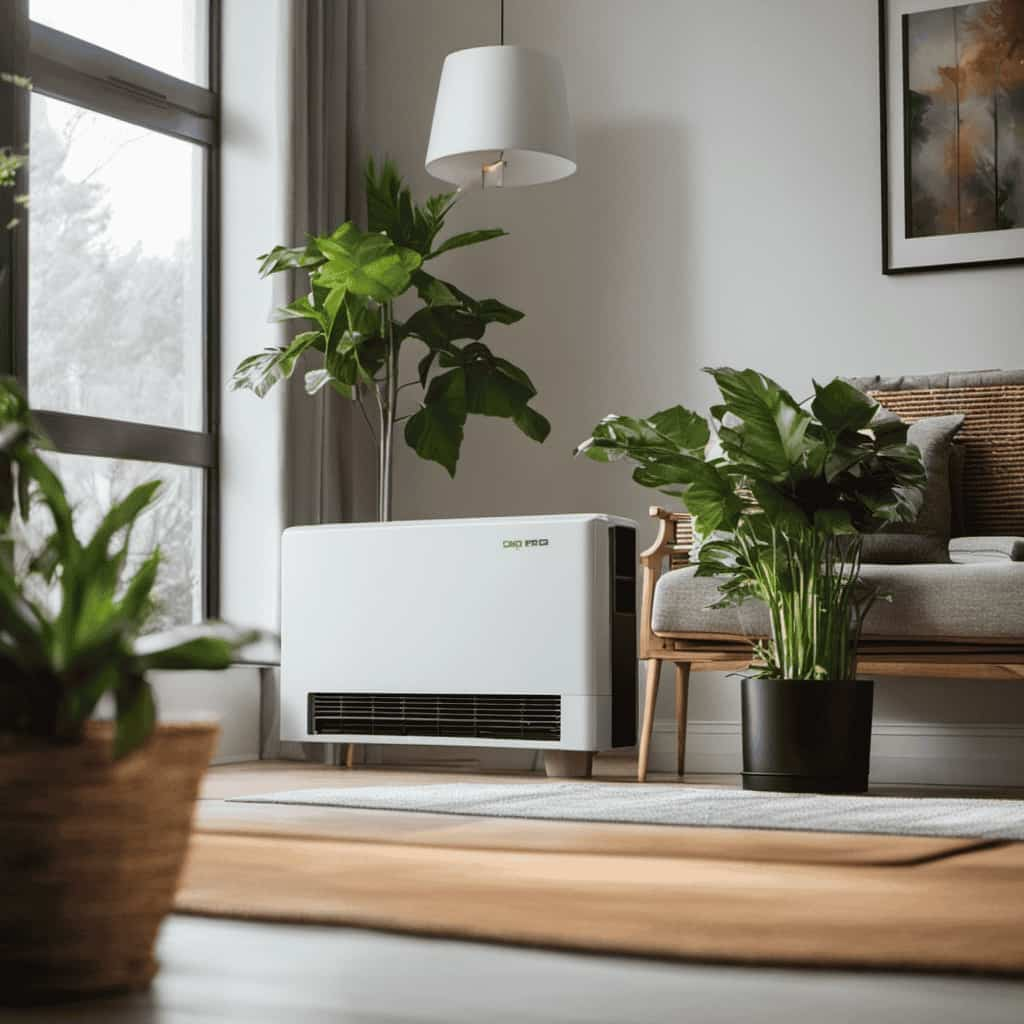
The Compatibility of Heat Pumps With Existing HVAC Systems
When it comes to the compatibility of heat pumps with existing HVAC systems, it’s important to note that these systems can be easily integrated. Heat pumps can work alongside your existing heating and cooling equipment, allowing for a seamless transition.
The benefits of heat pumps, such as energy efficiency and cost savings, make them a valuable addition to any HVAC system.
Existing HVAC System Integration
We can easily integrate heat pumps with existing HVAC systems to enhance climate control. Here are some key points to consider when integrating heat pumps with your current system:
Compatibility: Heat pumps can be integrated with various types of HVAC systems, including forced-air systems, ductless mini-splits, and geothermal systems.
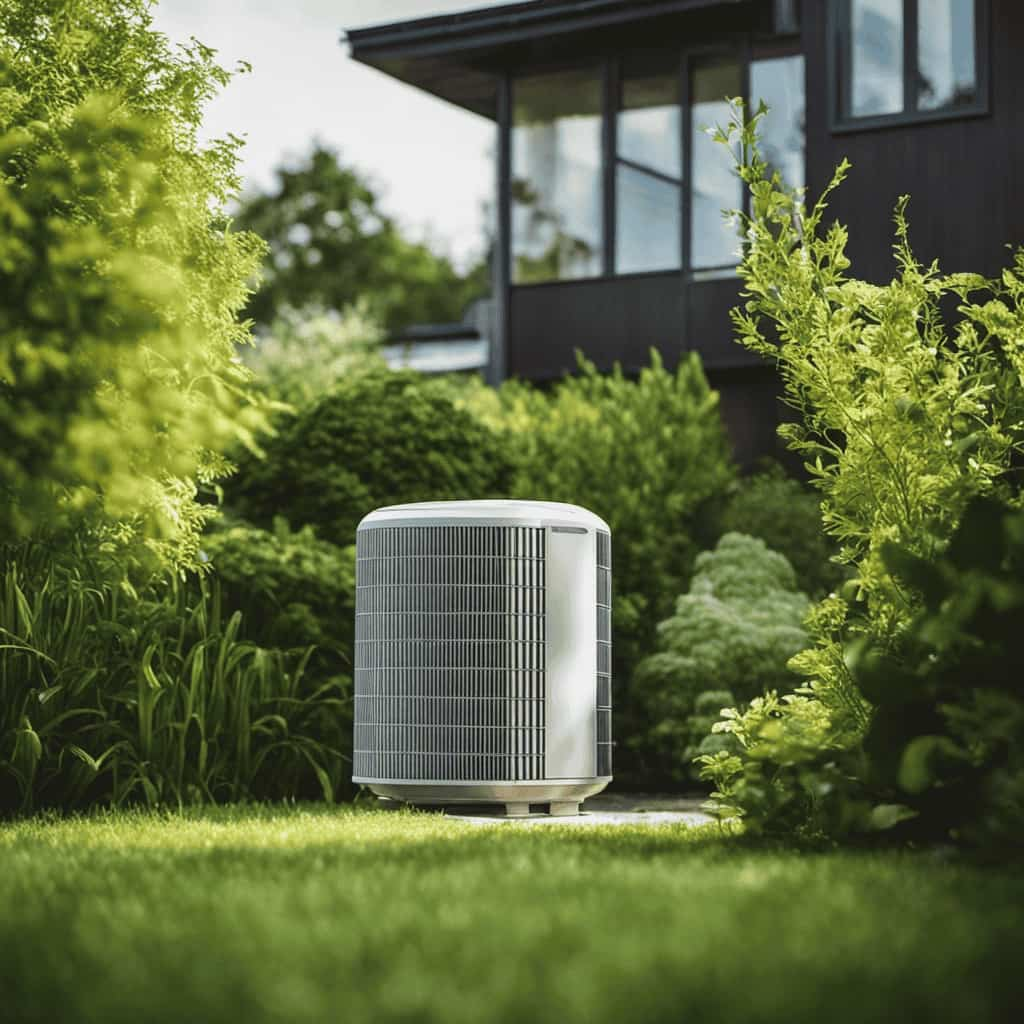
Integration Challenges: Depending on the age and condition of your existing system, there may be some challenges in integrating heat pumps. However, most HVAC systems can be retrofitted to accommodate heat pumps.
Retrofit Options: Retrofitting your existing HVAC system may involve adding additional ductwork, upgrading the electrical system, or modifying the layout to accommodate the heat pump.
Efficiency Benefits: Integrating a heat pump with your existing HVAC system can significantly improve energy efficiency and reduce heating and cooling costs.
Professional Assistance: It’s recommended to consult with a professional HVAC technician to assess your current system and determine the best integration options for optimal performance and comfort.

Benefits of Heat Pumps
For optimal compatibility with existing HVAC systems, heat pumps offer numerous benefits.
One of the main advantages is their energy efficiency, which can result in significant savings on utility bills. Heat pumps operate by transferring heat from one space to another, rather than generating heat themselves, making them much more energy-efficient than traditional heating and cooling systems.
Additionally, heat pumps can improve indoor air quality by continuously circulating and filtering the air, removing pollutants and allergens. This is especially beneficial for individuals with respiratory conditions or allergies.
Another advantage of heat pumps is their versatility. They can provide both heating and cooling, eliminating the need for separate systems. This makes them a convenient and cost-effective solution for climate control in homes and commercial buildings.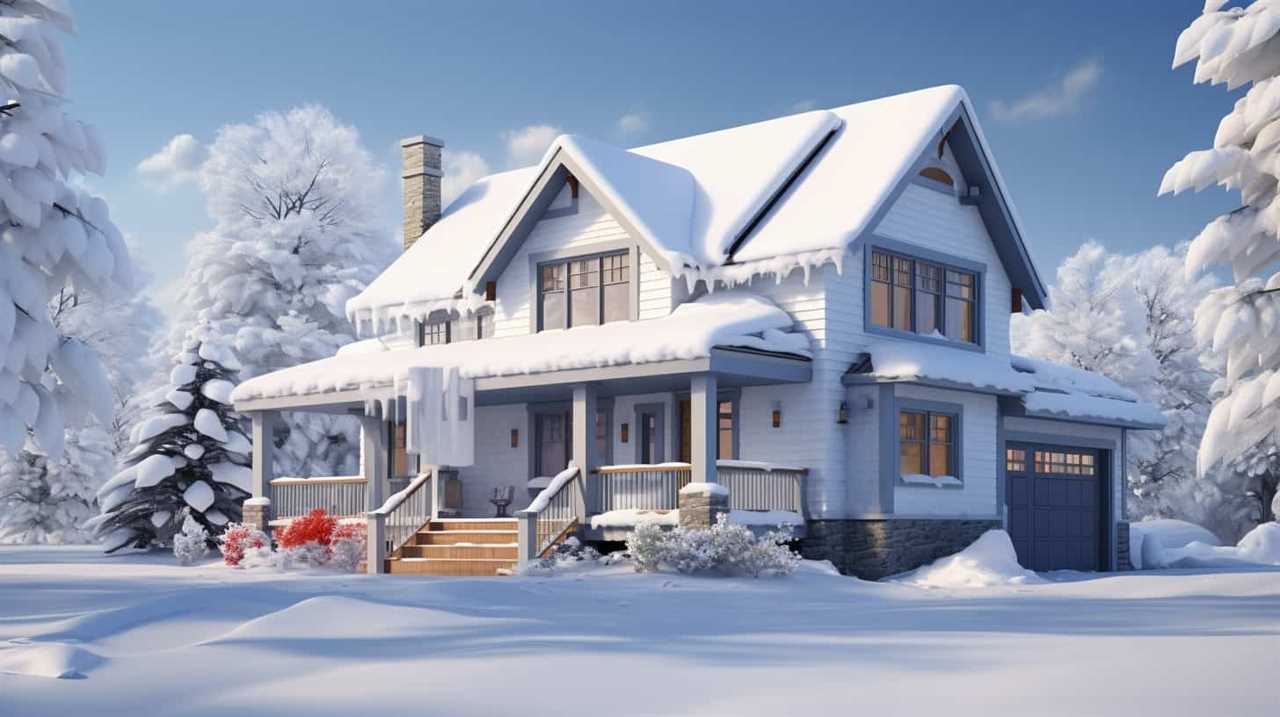
The Performance of Heat Pumps in Extreme Climates
Our experience shows that heat pumps can maintain reliable performance in even the most extreme climates. Whether you live in the frigid temperatures of the Arctic or the scorching heat of the desert, heat pumps are designed to keep your indoor space comfortable year-round. Here are some key reasons why heat pumps excel in extreme climates:
Energy Efficient: Heat pumps use electricity to transfer heat rather than generate it, making them highly efficient in extreme temperatures.
Versatile Operation: Heat pumps can both heat and cool your indoor space, providing comfort regardless of the outside weather conditions.
Consistent Performance: Heat pumps are equipped with advanced technology that allows them to deliver reliable heating and cooling even in extreme climates.

Improved Air Quality: Heat pumps have built-in filters that help remove dust, allergens, and pollutants from the air, ensuring a healthier indoor environment.
Cost Savings: By efficiently heating and cooling your space, heat pumps can help reduce energy consumption and lower utility bills.
With their exceptional performance and ability to maintain comfortable temperatures, heat pumps are a reliable solution for climate control in extreme conditions.
Now, let’s explore the lifespan of heat pumps for climate control.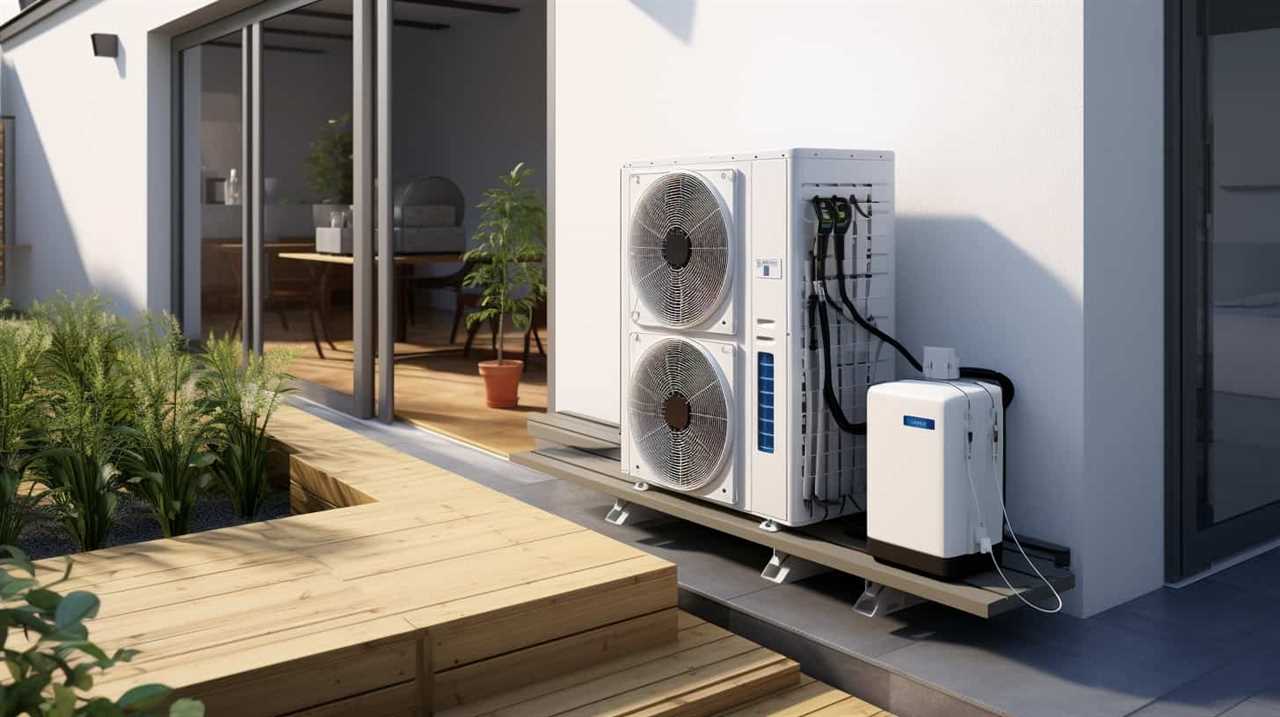
The Lifespan of Heat Pumps for Climate Control
Over time, heat pumps can typically last between 15 to 20 years, providing long-lasting climate control for your home or business. The lifespan of heat pumps is influenced by various factors, including the quality of the unit, regular maintenance, and environmental conditions. By taking proper care of your heat pump, you can ensure its longevity and optimize its performance.
Here are some lifespan factors and maintenance tips to keep in mind:
| Lifespan Factors | Maintenance Tips |
|---|---|
| Quality of the unit | Invest in a high-quality heat pump from a reputable brand |
| Regular maintenance | Schedule annual professional inspections and tune-ups |
| Environmental conditions | Protect the heat pump from extreme weather and debris |
| Proper installation | Hire a qualified technician for installation |
| Usage patterns | Avoid frequent on/off cycling and extreme temperature changes |
Following these maintenance tips and considering the lifespan factors can help extend the life of your heat pump, ensuring efficient climate control for many years to come.
Now, let’s explore the energy savings of heat pumps for climate control.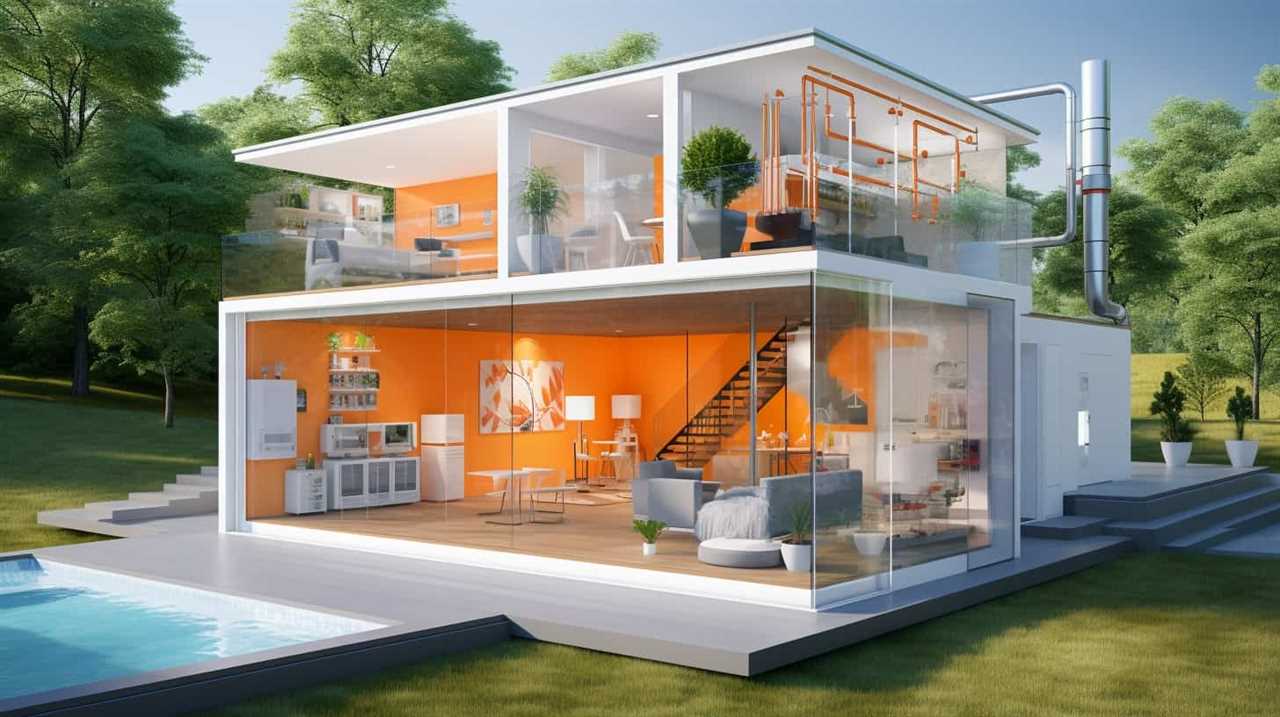
The Energy Savings of Heat Pumps for Climate Control
To maximize the energy savings of heat pumps for climate control, we can implement smart thermostat technology and regularly clean or replace air filters. By utilizing these strategies, we can significantly reduce energy consumption and achieve long-term savings.
Here are five ways heat pumps can help save energy:
Smart thermostat technology allows you to program your heat pump to operate at optimal levels, minimizing energy usage when you’re not at home.
Cleaning or replacing air filters regularly ensures that your heat pump operates efficiently, reducing the amount of energy it needs to maintain the desired temperature.
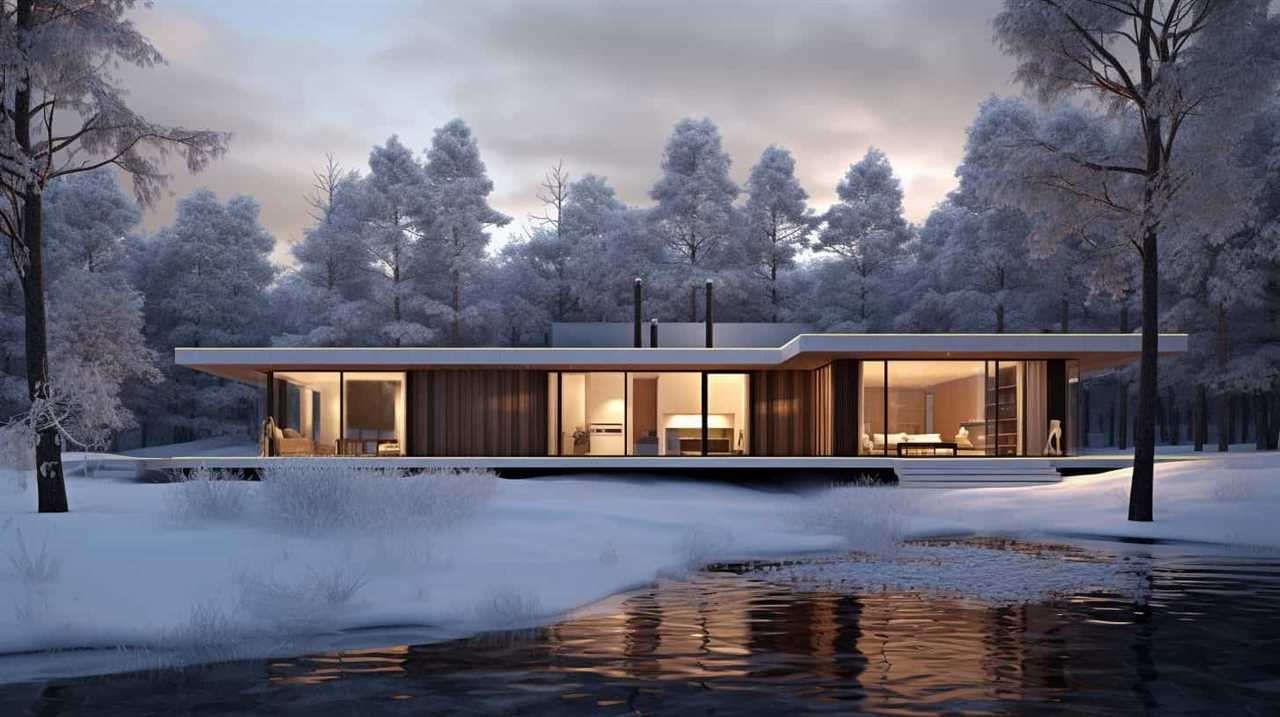
Heat pumps are highly energy-efficient compared to traditional heating and cooling systems, resulting in lower energy consumption and reduced utility bills.
Heat pumps utilize renewable energy sources, such as the heat in the air or the ground, to provide climate control, reducing reliance on fossil fuels and further contributing to energy savings.
The long lifespan of heat pumps means that you can enjoy energy savings for many years, making them a cost-effective solution for climate control.
The Installation Process for Heat Pumps for Climate Control
When it comes to installing heat pumps for climate control, there are a few key points to consider.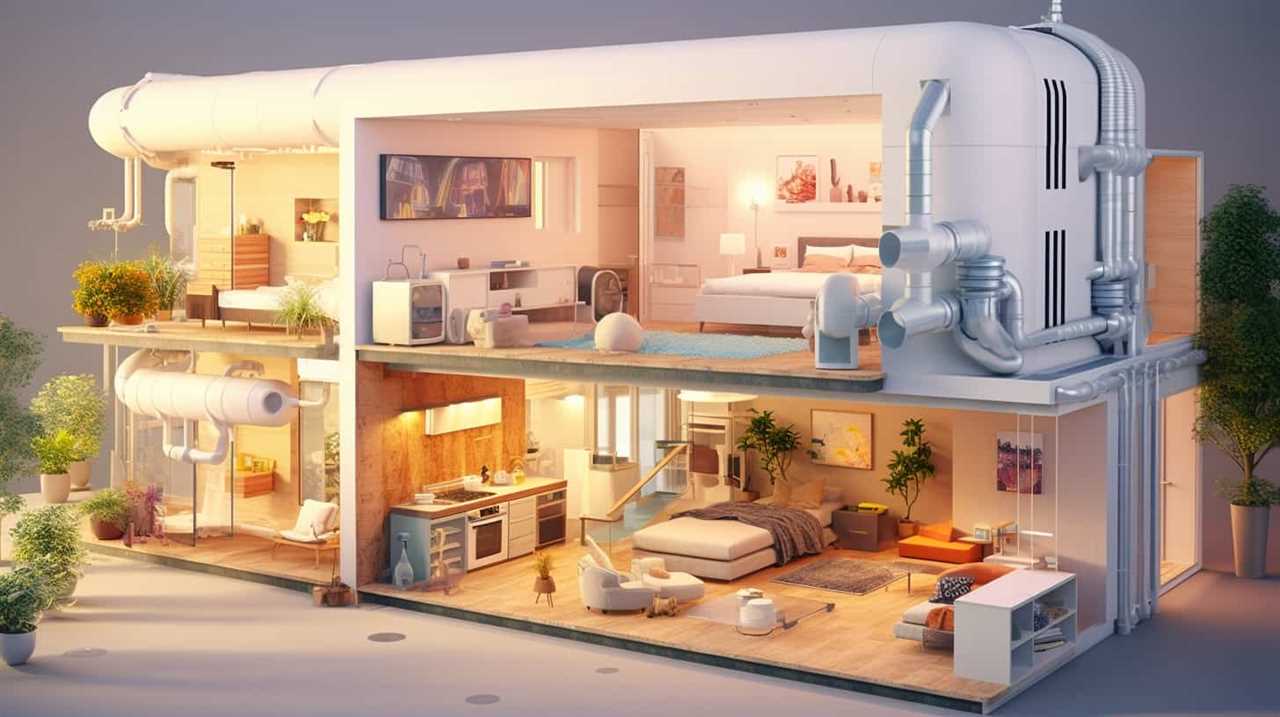
Firstly, cost and efficiency play a crucial role in the decision-making process. Heat pumps can be more expensive upfront, but they offer long-term energy savings that make them a worthwhile investment.
Secondly, it’s important to note that professional installation is required for optimal performance and safety.
Lastly, installing heat pumps can have numerous benefits for the environment, as they use renewable energy sources and produce less greenhouse gas emissions compared to traditional heating and cooling systems.
Cost and Efficiency
We can save a significant amount of money and improve the energy efficiency of our home by installing heat pumps for climate control. Heat pumps offer several advantages in terms of cost and efficiency, including:
- Lower installation cost compared to traditional HVAC systems
- Energy efficiency that can result in reduced utility bills
- Potential for tax credits and rebates to offset initial investment
- Dual functionality, providing both heating and cooling
- Environmentally friendly option, as heat pumps use renewable energy sources
By investing in a heat pump for climate control, we can’t only save money in the long run but also contribute to a greener and more sustainable environment.
However, it’s important to note that professional installation is required to ensure optimal performance and efficiency.
Professional Installation Required
During the installation process for heat pumps for climate control, our home will require professional installation to ensure optimal performance and efficiency.
It’s crucial to understand that heat pumps are complex systems that require specialized knowledge and skills for proper installation. Professionals undergo extensive professional training to ensure they’ve the expertise to handle the intricacies of heat pump installation.
They’re knowledgeable about the specific requirements of different heat pump models and can accurately assess the suitability of your home for installation. Additionally, professionals have access to the necessary tools and equipment to complete the installation safely and efficiently.
While some homeowners may consider a DIY installation to save costs, it isn’t recommended. Without the proper training and experience, DIY installation can lead to costly mistakes, compromised performance, and potential safety hazards.
Opting for professional installation guarantees that your heat pump will be installed correctly, maximizing its efficiency and longevity.
Benefits for the Environment
Installing heat pumps for climate control offers several benefits for the environment, contributing to a more sustainable future. Here are some ways the installation process can help reduce our carbon footprint and promote the use of renewable energy sources:
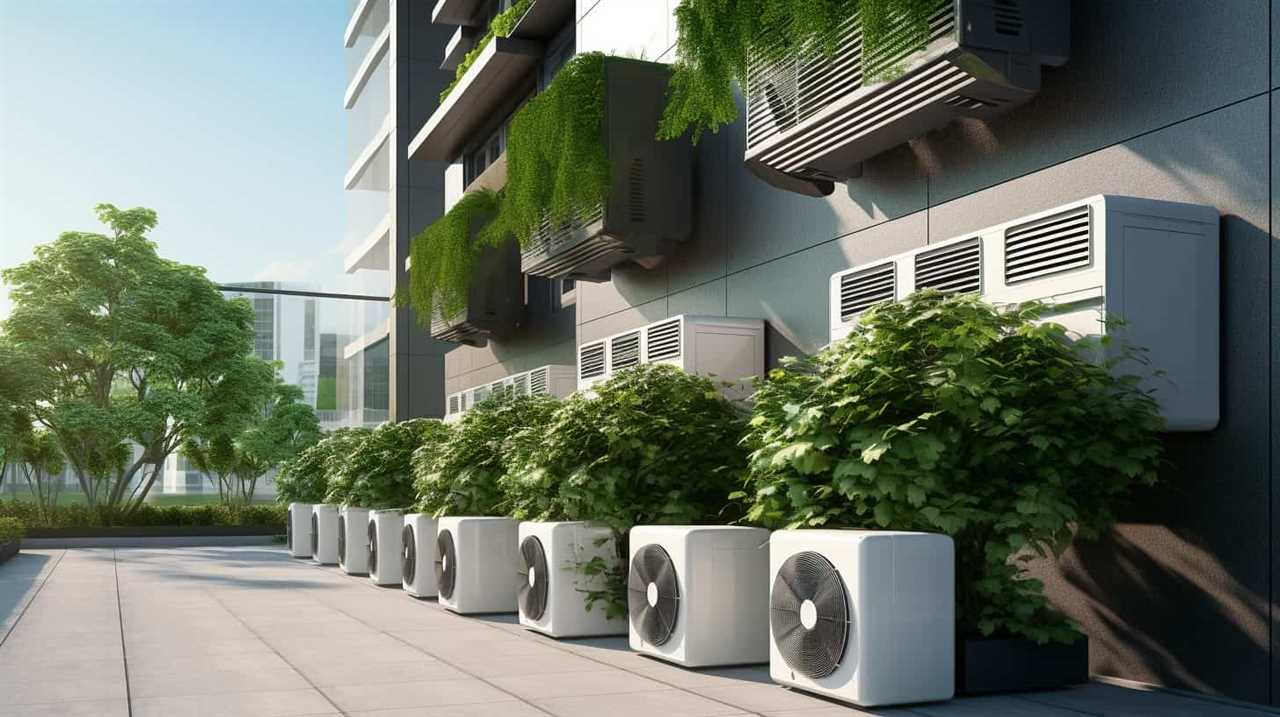
Energy Efficiency: Heat pumps are highly efficient, using minimal energy to transfer heat from one area to another, resulting in lower energy consumption and reduced greenhouse gas emissions.
Renewable Energy Source: Heat pumps utilize renewable energy sources, such as the air, ground, or water, to generate heat or cool air, reducing reliance on fossil fuels and decreasing environmental impact.
Reduced Emissions: By using heat pumps, we can significantly decrease the release of harmful pollutants and greenhouse gases into the atmosphere, contributing to improved air quality and mitigating climate change.
Long Lifespan: Heat pumps have a long lifespan, meaning fewer units need to be manufactured and disposed of, reducing waste and minimizing environmental impact.
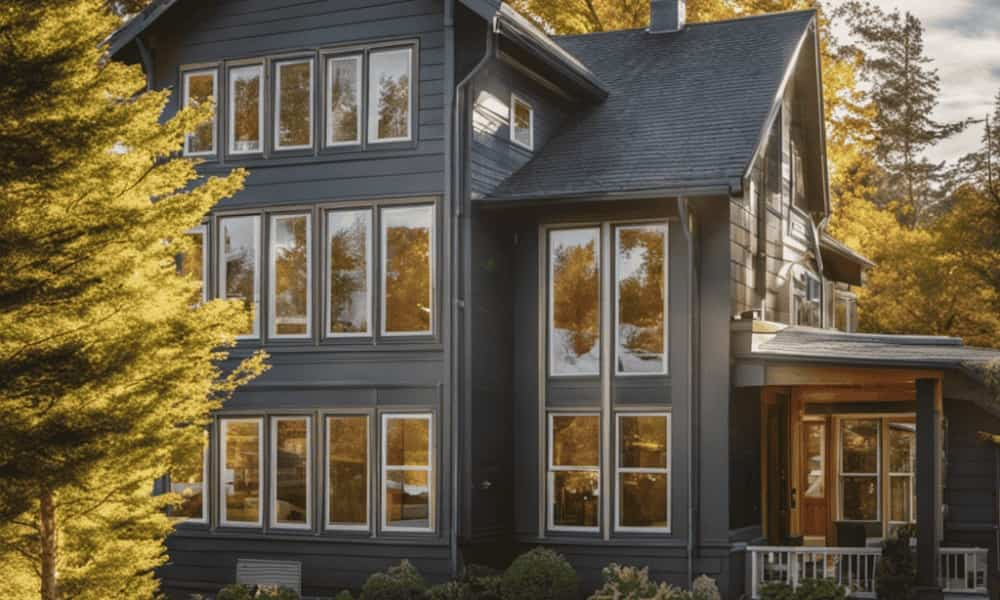
Natural Resource Conservation: Heat pumps rely on the natural heat sources available in the environment, such as air or geothermal energy, preserving precious natural resources for future generations.
Frequently Asked Questions
Can Heat Pumps Be Used to Cool a Space as Well as Heat It?
Yes, heat pumps can cool a space as well as heat it. They use a refrigerant cycle to transfer heat from the inside to the outside, making them an energy-efficient option for cooling.
Are Heat Pumps Suitable for Use in Residential Homes?
Heat pumps are a great investment for residential homes. With their efficient heat pump installation and numerous benefits, they provide reliable climate control all year round.
Do Heat Pumps Require a Lot of Maintenance?
Heat pumps do not require a lot of maintenance. Contrary to common misconceptions, the frequency of heat pump maintenance is minimal. With regular filter cleaning and annual professional inspections, heat pumps can provide efficient climate control for residential homes.
How Long Do Heat Pumps Typically Last Before Needing to Be Replaced?
Heat pumps typically last around 15-20 years before needing to be replaced. Signs of replacement include decreased efficiency, frequent repairs, and age-related wear and tear. Regular maintenance can extend the lifespan of a heat pump.
How Much Energy Can Heat Pumps Save Compared to Traditional HVAC Systems?
Heat pumps are highly energy-efficient compared to traditional HVAC systems, resulting in significant cost savings. They utilize the heat from the air or ground to provide heating and cooling, reducing reliance on fossil fuels and lowering utility bills.
Are the Heat Pumps Trusted by Climate Control Experts Really the Best?
Heat pumps trusted by climate control experts are considered the best choice for efficient heating and cooling. With their ability to transfer heat from one area to another, these pumps provide reliable temperature control. Leading experts recommend them for their energy-saving capabilities and long-term cost-effectiveness, making these heat pumps a trusted solution for climate control needs.
Conclusion
In conclusion, heat pumps for climate control offer a multitude of benefits. They’re highly efficient, environmentally friendly, and cost-effective. With their versatility, they can provide both heating and cooling solutions. While some may have concerns about noise levels, heat pumps operate quietly.
They also perform well in extreme climates and have a long lifespan. Most importantly, they result in significant energy savings. Installing heat pumps for climate control is a wise choice, like planting a seed that grows into a flourishing garden of comfort and efficiency.
Climate Control
Unveiling the Thrifty Power of Energy-Efficient Heat Pumps

We’ve all experienced that feeling – anxiously awaiting the arrival of our monthly energy bill, trying to find ways to save money we worked hard for.
Well, look no further. Energy-efficient heat pumps are here to revolutionize the way we think about heating our homes. With their thrifty power, these innovative devices not only reduce energy consumption but also provide substantial long-term cost savings.
Let’s dive into the world of energy-efficient heat pumps and unveil the secrets to financial success and sustainability.
Key Takeaways
- Energy-efficient heat pumps can significantly reduce monthly utility bills through their energy consumption savings.
- Conducting a cost analysis is crucial to understand the cost-effectiveness of energy-efficient heat pumps, including evaluating initial investment cost, energy savings, and payback period.
- Energy-efficient heat pumps offer financial benefits such as lower utility bills, reduced maintenance costs, and potential incentives and rebates.
- Energy-efficient heat pumps provide long-term cost savings through reduced energy consumption, lower maintenance expenses, and longer lifespan.
Cost-Effectiveness of Energy Efficient Heat Pumps
We’ve discovered that energy efficient heat pumps can significantly reduce our monthly utility bills. To truly understand the cost-effectiveness of energy efficient heat pumps, a comprehensive cost analysis is necessary.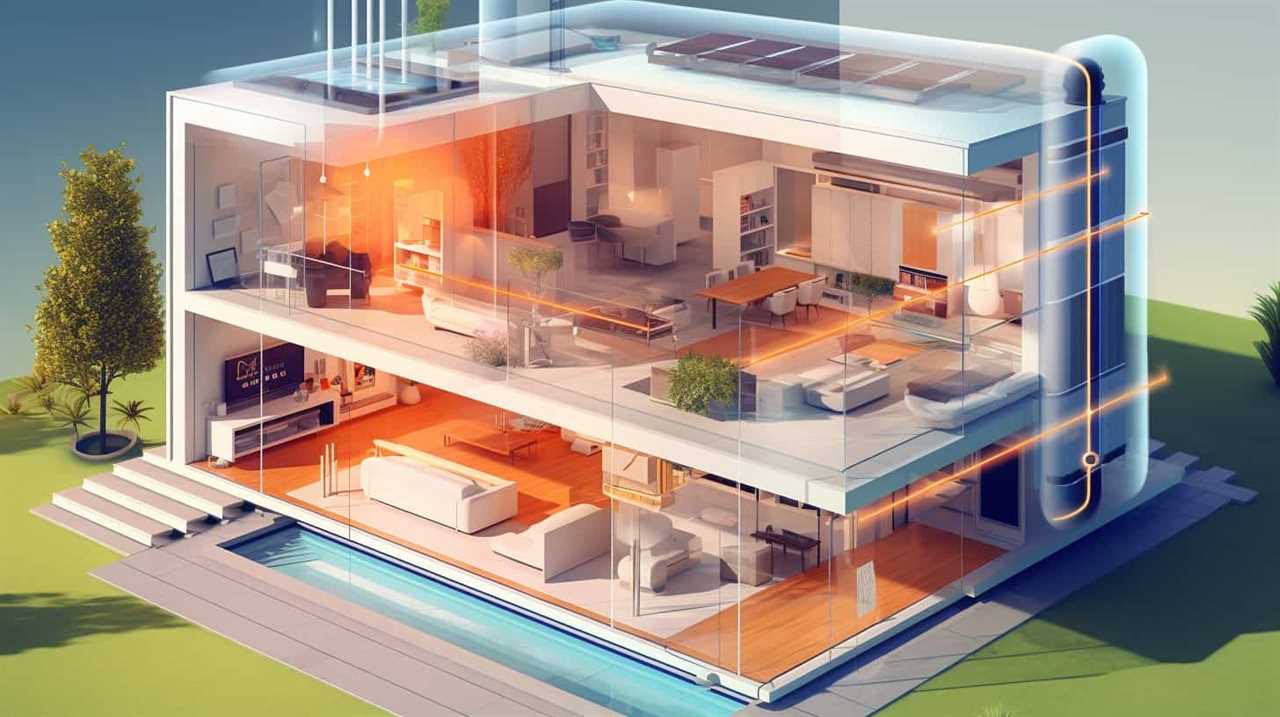
This analysis entails evaluating the initial investment cost, energy consumption savings, and the payback period. The initial investment cost includes the purchase and installation of the heat pump, as well as any necessary modifications to the existing infrastructure.
By comparing the energy consumption of energy efficient heat pumps to traditional heating systems, we can determine the potential savings over time. The payback period is the time it takes for the energy savings to offset the initial investment cost.
Through careful cost analysis, we can ascertain the financial benefits of energy efficient heat pumps and make informed decisions regarding their implementation.
Savings Potential of Energy-Efficient Heat Pumps
We can maximize our savings by utilizing energy-efficient heat pumps and making smart choices about our energy consumption. Energy-efficient heat pumps offer significant energy savings compared to traditional heating and cooling systems. By reducing energy consumption, we not only save money on our utility bills but also reduce our environmental impact.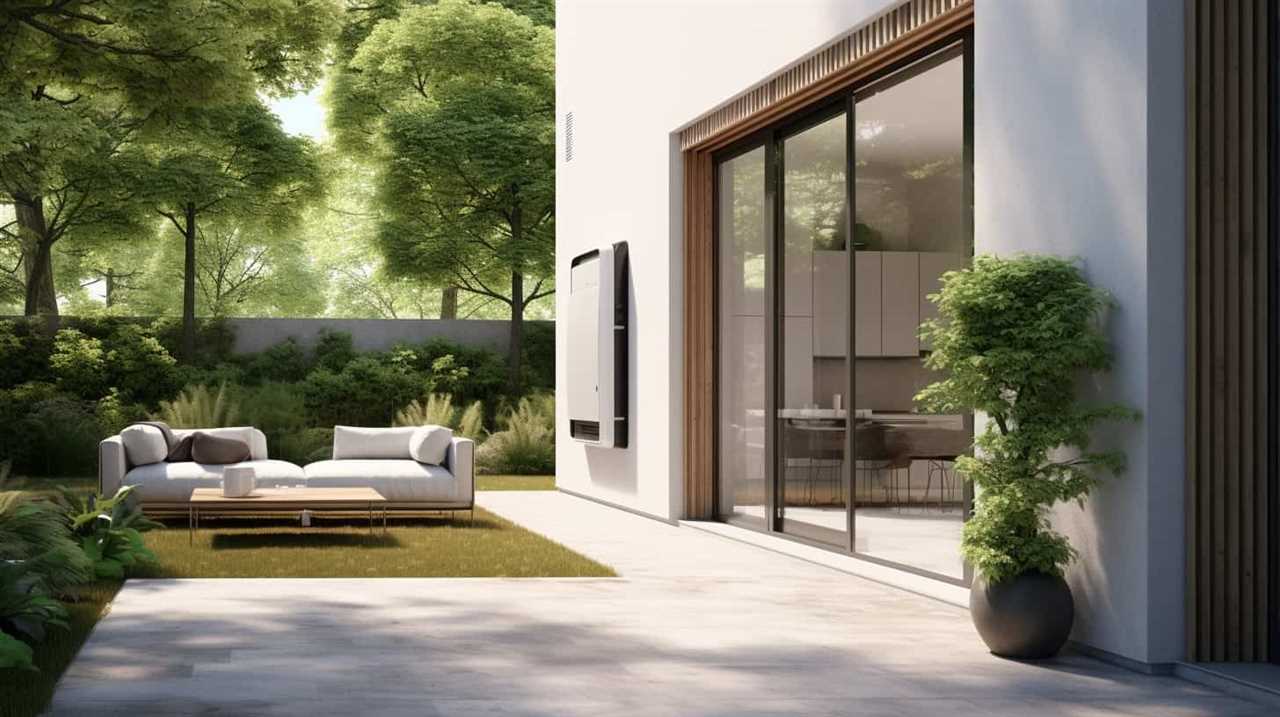
To illustrate the potential savings of energy-efficient heat pumps, let’s take a look at the following table:
| Energy Consumption | Annual Cost (Traditional System) | Annual Cost (Energy-Efficient Heat Pump) |
|---|---|---|
| Heating | $900 | $600 |
| Cooling | $800 | $500 |
| Total | $1,700 | $1,100 |
As we can see, by using energy-efficient heat pumps, we can save $600 per year on heating and $300 per year on cooling, resulting in a total annual savings of $600. Not only do these savings benefit our wallets, but they also contribute to a greener and more sustainable future.
Return on Investment for Energy-Efficient Heat Pumps
To determine the return on investment for energy-efficient heat pumps, let’s analyze the cost savings and payback period compared to traditional heating and cooling systems.
Conducting an ROI analysis is crucial in understanding the benefits of energy-efficient heat pumps and making informed decisions about their implementation.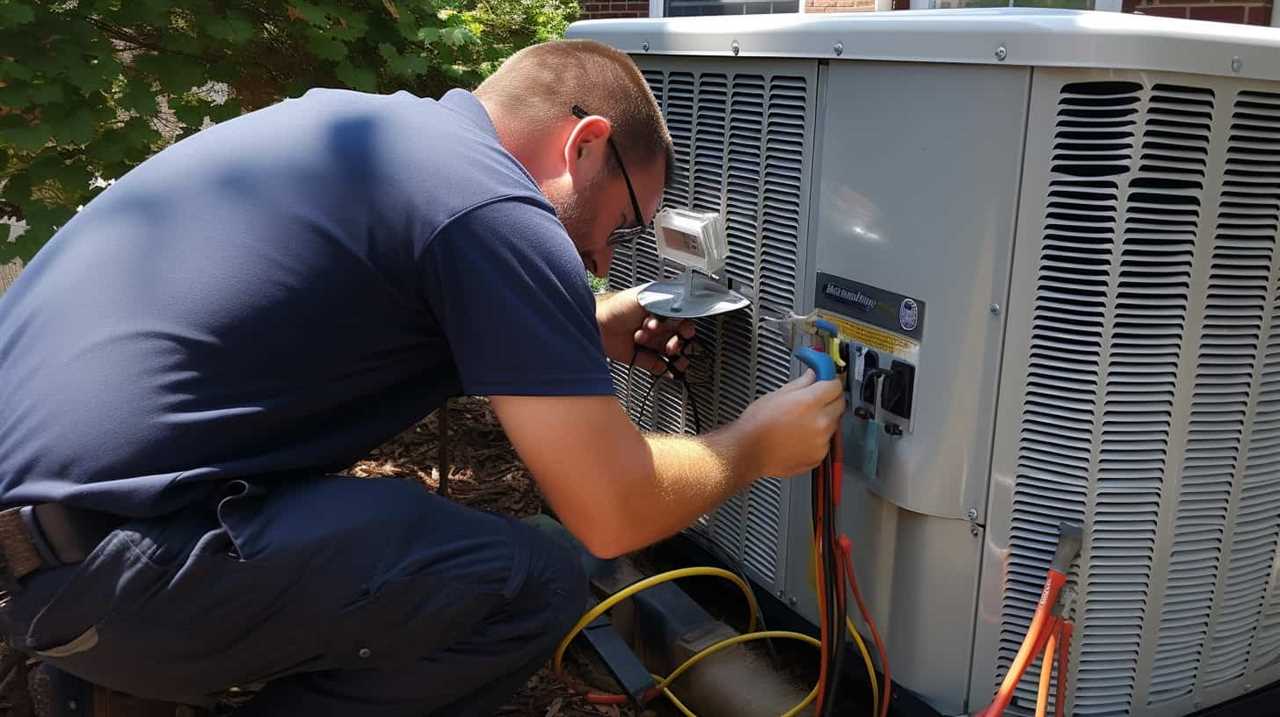
Energy-efficient heat pumps have several advantages that contribute to their positive ROI. Firstly, they consume significantly less energy compared to traditional systems, resulting in lower utility bills and operational costs.
Secondly, they’ve a longer lifespan and require less maintenance, reducing the overall expenses associated with heating and cooling.
Thirdly, energy-efficient heat pumps often qualify for various incentives and rebates, further enhancing their financial viability.
Lastly, their ability to provide both heating and cooling in a single system eliminates the need for separate units, saving on installation and equipment costs.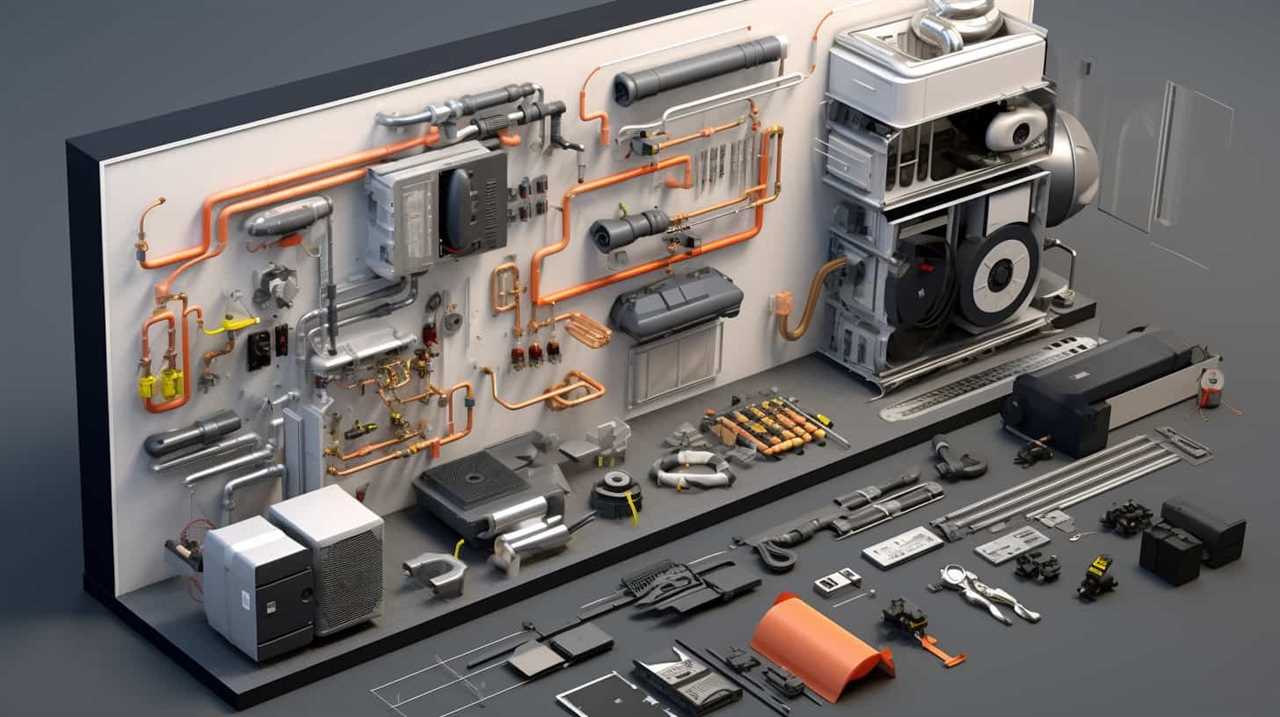
Financial Benefits of Choosing Energy-Efficient Heat Pumps
Choosing energy-efficient heat pumps provides both cost savings and environmental benefits. Not only do these heat pumps reduce energy consumption, but they also qualify for tax credits, further reducing their upfront cost. Additionally, energy-efficient heat pumps require less maintenance, leading to reduced maintenance costs in the long run.
To illustrate the financial benefits of choosing energy-efficient heat pumps, consider the following table:
| Financial Benefit | Description |
|---|---|
| Tax credits | Energy-efficient heat pumps qualify for tax credits, reducing the initial investment. |
| Reduced maintenance costs | Energy-efficient heat pumps require less maintenance, resulting in lower overall maintenance expenses. |
Long-Term Cost Savings With Energy-Efficient Heat Pumps
Over the course of several years, energy-efficient heat pumps can lead to significant long-term cost savings. Here are four reasons why investing in these pumps can result in substantial financial benefits:
Energy Efficiency: Energy-efficient heat pumps are designed to consume less electricity while providing the same level of heating or cooling. This translates to lower energy bills over time, resulting in long-term savings.

Reduced Maintenance Costs: Energy-efficient heat pumps are built with advanced technology that improves their durability and reliability. This means fewer breakdowns and repairs, leading to reduced maintenance expenses in the long run.
Government Incentives: Many governments offer incentives and rebates to encourage the use of energy-efficient appliances, including heat pumps. These financial incentives can help offset the initial investment and accelerate the payback period.
Environmental Impact: By consuming less energy, energy-efficient heat pumps contribute to reduced greenhouse gas emissions and environmental impact. This not only helps protect the planet but also positions homeowners as environmentally conscious individuals.
Frequently Asked Questions
How Does the Installation of Energy-Efficient Heat Pumps Impact the Overall Value of a Home?
Installing energy-efficient heat pumps positively impacts the overall value of our homes. They reduce energy consumption and provide long-term cost savings. These innovative systems are a smart investment for those seeking to minimize expenses and maximize efficiency.

Are There Any Government Incentives or Rebates Available for Purchasing Energy-Efficient Heat Pumps?
There are government incentives and rebates available for purchasing energy-efficient heat pumps. The installation of these pumps can also positively impact the overall value of a home.
Can Energy-Efficient Heat Pumps Be Used in Both Residential and Commercial Settings?
Yes, energy-efficient heat pumps can be used in both residential and commercial settings. A cost effectiveness analysis shows that these pumps can significantly reduce energy consumption and save money in the long run.
Are There Any Maintenance Costs Associated With Owning an Energy-Efficient Heat Pump?
Yes, there are maintenance costs associated with owning an energy-efficient heat pump. However, these costs are offset by the substantial energy savings that the heat pump provides, making it a thrifty investment in the long run.
What Are the Environmental Benefits of Using Energy-Efficient Heat Pumps Compared to Traditional Heating Systems?
Using energy-efficient heat pumps instead of traditional heating systems can lead to significant cost savings and a reduction in greenhouse gas emissions. For example, a case study showed a 40% decrease in energy consumption and a 30% decrease in carbon emissions.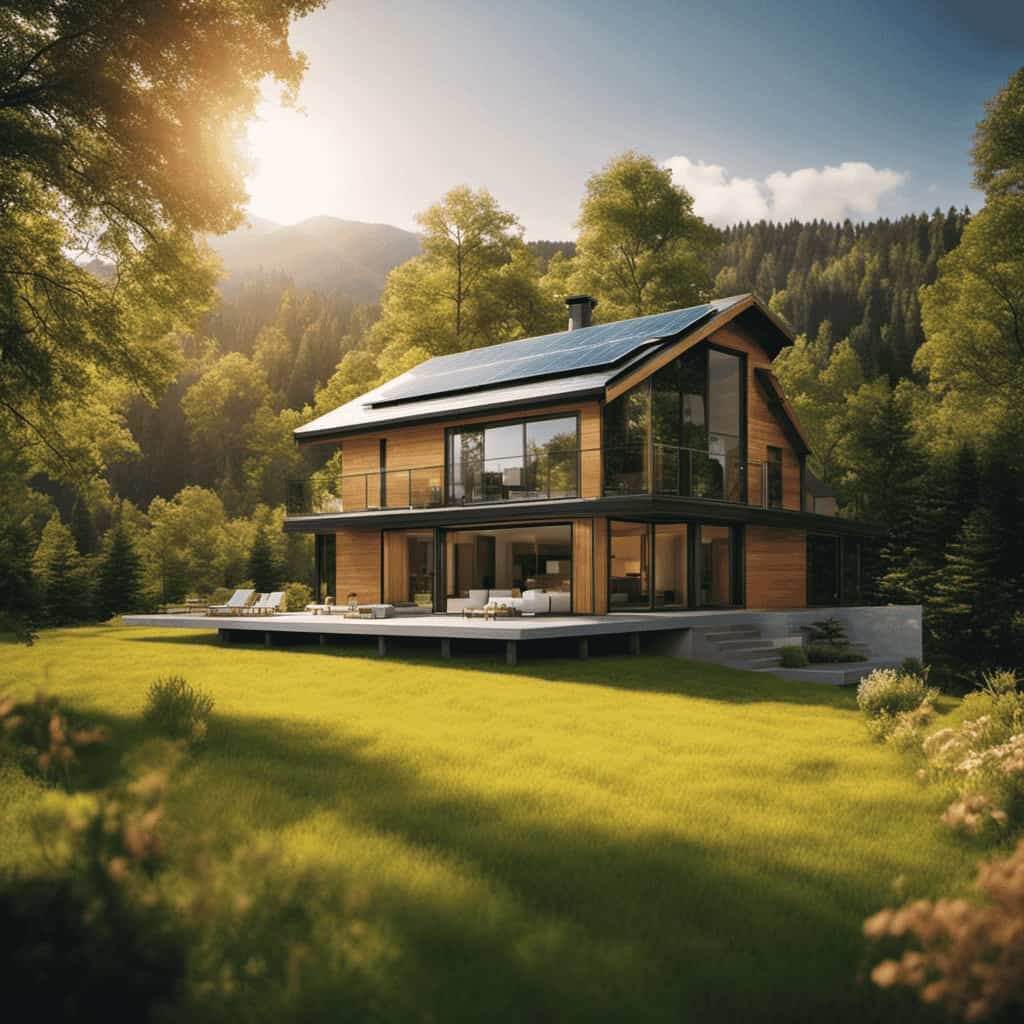
What Are the Benefits of Using Energy-Efficient Heat Pumps for Climate Control?
If you’re searching for cost-effective and environmentally friendly ways to regulate indoor climate, look no further than the perks of heat pumps for climate control. By efficiently transferring heat from one place to another, these systems provide optimal heating and cooling all year round. Enjoy reduced energy consumption, lower utility bills, and a smaller carbon footprint, all while maintaining a comfortable home temperature.
Conclusion
In conclusion, the cost-effectiveness of energy-efficient heat pumps is undeniable. With a potential savings of up to 50% on heating costs, the return on investment for these systems is impressive.
Choosing energy-efficient heat pumps not only provides financial benefits but also leads to long-term cost savings. Embracing this thrifty power can significantly impact our energy consumption and contribute to a more sustainable future.
Climate Control
History Reveals Impact of Green Heating Solutions

Have we truly taken into consideration the environmental impact of advancements in heating technology?
In this article, we delve into the history of green heating solutions and their revolutionary advances in energy efficiency.
By taking a closer look at their early adoption and the transformative effects they’ve had on the heating industry, we uncover the profound historical impact of eco-friendly solutions on environmental preservation.
Join us as we explore the fascinating journey that has shaped our present and holds the key to a liberated future.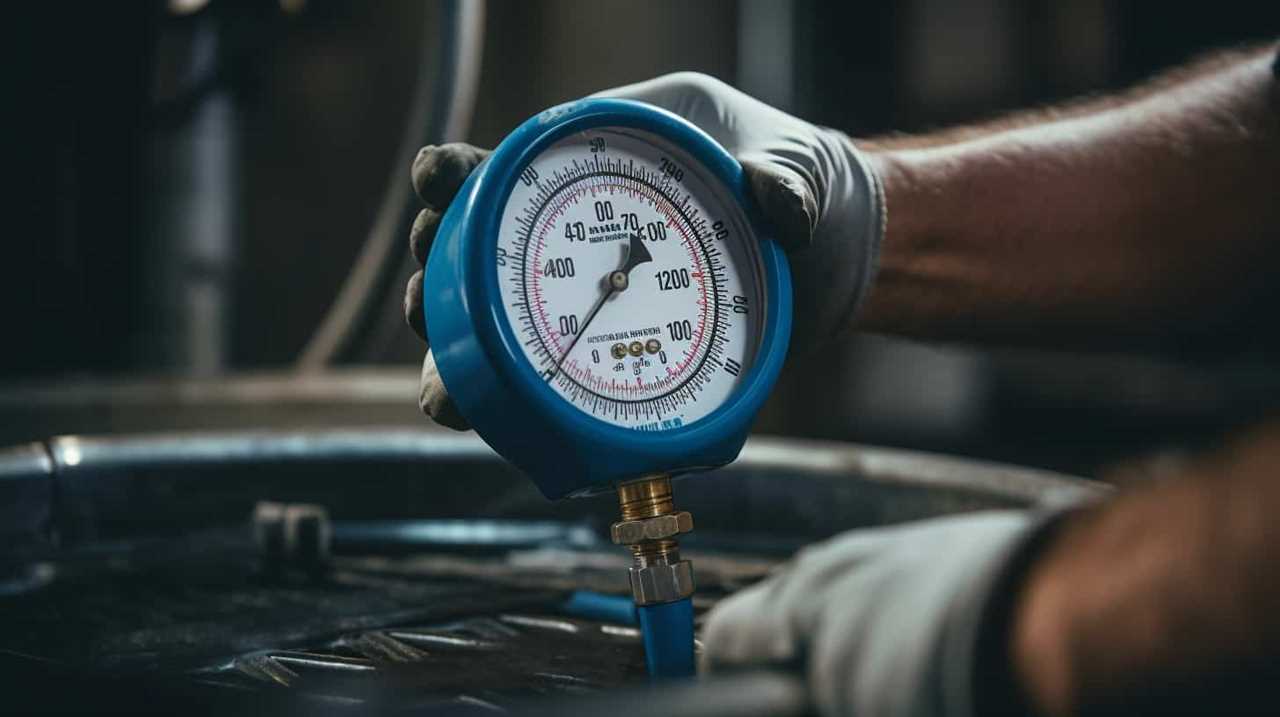
Key Takeaways
- Green heating technologies have led to a significant decrease in greenhouse gas emissions and air pollution.
- Adoption of eco-friendly heating solutions has resulted in cost savings and reduced maintenance compared to traditional systems.
- The use of renewable energy sources in heating has contributed to energy independence and reduced reliance on fossil fuels.
- Green heating practices have not only created new job opportunities in the renewable energy sector but also contributed to economic growth and societal well-being.
Evolution of Heating Technology
We have witnessed the remarkable evolution of heating technology over the years. This evolution has been driven by the growing recognition of the advantages of renewable energy and the urgent need to reduce carbon emissions.
Traditional heating systems, such as fossil fuel-based boilers, have been replaced by greener alternatives like solar panels, geothermal heating, and biomass boilers. These renewable energy solutions have had a significant impact on reducing carbon emissions, as they produce little to no greenhouse gases during operation. Furthermore, they offer long-term cost savings and reduced reliance on depletable energy sources.
The development and adoption of these green heating technologies have paved the way for a more sustainable and environmentally friendly future. As we continue to embrace renewable energy, we can expect further advancements in heating technology that will revolutionize the way we keep our homes warm while minimizing our carbon footprint.
Early Adoption of Green Heating Solutions
Our early adoption of green heating solutions paved the way for a more sustainable future. By embracing environmentally-friendly heating technologies, we haven’t only reduced our carbon footprint but also contributed to the preservation of our planet.
The following are four key benefits of our early adoption of green heating solutions:
Environmental benefits: Green heating solutions significantly decrease greenhouse gas emissions and air pollution, leading to cleaner and healthier air for everyone to breathe.
Economic advantages: Implementing green heating solutions can result in substantial cost savings, as they’re often more energy-efficient and require less maintenance compared to traditional heating systems.
Energy independence: By utilizing renewable energy sources for heating, we reduce our dependence on fossil fuels, enhancing our energy security and reducing the vulnerability to price fluctuations.
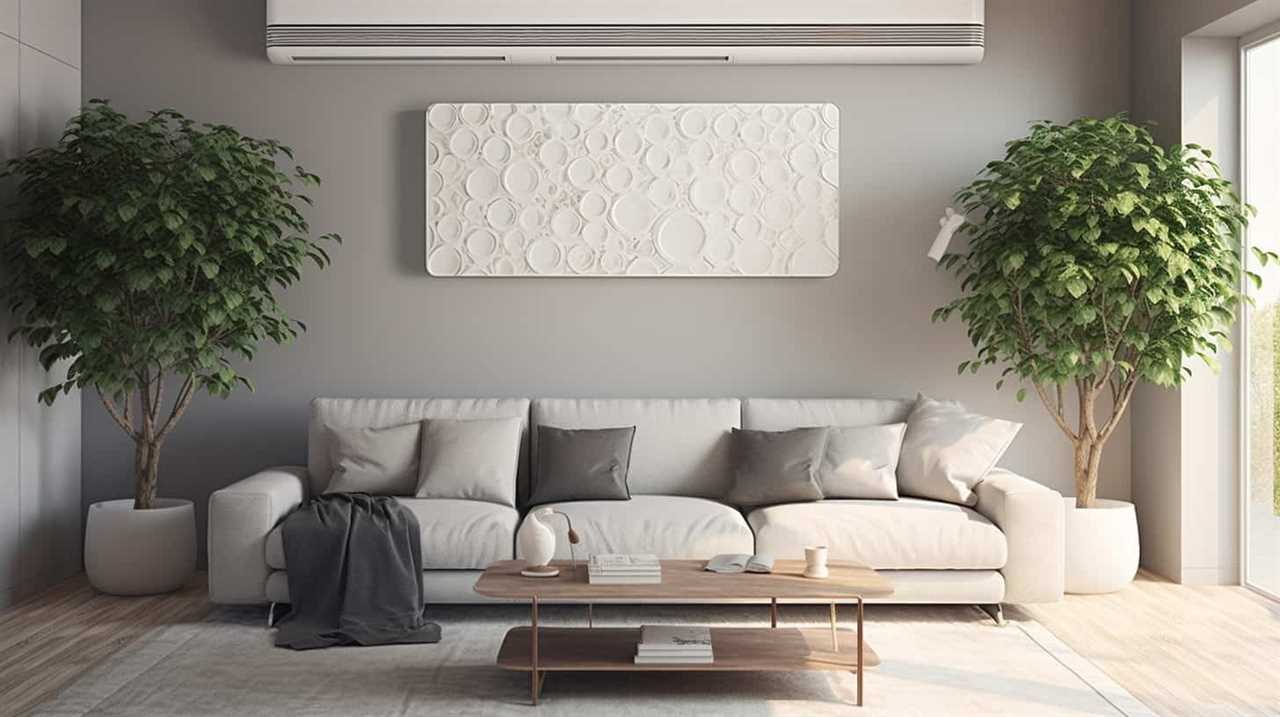
Job creation: The shift towards green heating solutions has created new employment opportunities in fields such as renewable energy installation, maintenance, and research, contributing to economic growth and societal well-being.
Revolutionary Advances in Energy Efficiency
Have recent advancements in energy efficiency revolutionized the way we heat our homes and buildings? Absolutely.
Energy saving innovations have transformed the heating industry, offering sustainable heating options that not only reduce our carbon footprint but also save us money in the long run.
One of the most significant advances is the development of smart thermostats, which allow us to control our heating systems remotely and optimize energy usage based on our schedules and preferences.

Additionally, improved insulation materials and techniques have greatly reduced heat loss in buildings, minimizing the amount of energy needed to maintain a comfortable indoor temperature.
Furthermore, the integration of renewable energy sources, such as solar panels and geothermal systems, has provided clean and efficient ways to generate heat.
These revolutionary advances in energy efficiency have empowered us to heat our homes and buildings in an environmentally conscious and cost-effective manner.
Historical Impact of Green Heating on Environmental Preservation
Over the past century, numerous green heating solutions have been implemented, leading to significant reductions in environmental damage. Green heating practices have been utilized by ancient civilizations to preserve natural resources and minimize their impact on the environment. Here are four examples of how green heating has historically contributed to environmental preservation:
Utilization of solar energy: Ancient civilizations such as the Greeks and Romans harnessed the power of the sun to heat their homes and water, reducing the need for non-renewable energy sources.
Biomass heating: Indigenous communities used biomass, such as wood and agricultural waste, as a sustainable fuel source for heating, minimizing deforestation and carbon emissions.
Geothermal heating: In regions with access to hot springs or geothermal energy, communities used this natural heat source to warm their homes, reducing reliance on fossil fuels.
Passive heating design: Ancient architects incorporated design elements like south-facing windows and thick insulation to maximize natural heating, reducing the need for artificial heating methods.

Transformation of Heating Industry Through Eco-Friendly Solutions
How can the heating industry be transformed through eco-friendly solutions?
The transformation of the heating industry through eco-friendly solutions is crucial for the sustainable future of our planet. By adopting sustainable heating options, such as geothermal, solar, and biomass heating systems, we can significantly reduce our carbon footprint and mitigate the adverse effects of climate change.
These eco-friendly heating solutions offer numerous benefits, including reduced energy consumption, lower greenhouse gas emissions, and improved indoor air quality. Additionally, they can help to reduce dependence on fossil fuels, promote energy independence, and create job opportunities in the renewable energy sector.
The adoption of such solutions won’t only benefit the environment but also result in long-term cost savings for consumers. It’s imperative for the heating industry to embrace these eco-friendly solutions to ensure a greener and more sustainable future.
Frequently Asked Questions
How Does the Evolution of Heating Technology Impact the Overall Energy Consumption in Households and Businesses?
The evolution of heating technology impacts energy consumption in households and businesses through its evolutionary trends and economic implications. It is important to analyze the overall impact and consider the potential for liberation in energy use.
What Were the Primary Reasons for the Early Adoption of Green Heating Solutions in Different Regions Around the World?
Early adoption of green heating solutions in different regions around the world was driven by a variety of factors. These included early incentives provided by governments and global policies aimed at reducing carbon emissions and promoting sustainable energy sources.
Can You Provide Examples of Revolutionary Advances in Energy Efficiency That Have Significantly Contributed to Reducing Carbon Emissions?
Revolutionary advances in energy efficiency include smart thermostats and geothermal heating. These technologies have significantly contributed to reducing carbon emissions by optimizing energy usage and utilizing renewable energy sources.
How Has the Historical Impact of Green Heating on Environmental Preservation Shaped Current Sustainability Practices and Policies?
Current sustainability practices and global environmental policies have been shaped by the long-term impact of green heating. Like a seed that grows into a mighty tree, historical preservation and the adoption of energy-efficient technology have paved the way for a greener future.
What Are Some Key Challenges Faced During the Transformation of the Heating Industry Through the Adoption of Eco-Friendly Solutions?
Challenges faced during the transformation of the heating industry through the adoption of eco-friendly solutions include high upfront costs, limited availability of green technologies, and the need for widespread consumer education. However, solutions such as government incentives and technological advancements are helping overcome these challenges.
What Are the Energy Efficiency Benefits of Heat Pumps for Climate Control?
Climate control with energy-efficient heat pumps offers numerous benefits in terms of energy efficiency. These innovative systems use minimal energy to transfer heat from one location to another, ensuring optimal climate control while minimizing energy consumption. By harnessing renewable energy sources such as air or ground, heat pumps reduce carbon emissions and provide cost-effective heating and cooling solutions. Additionally, they boast high-efficiency ratings and smart functionalities, allowing users to customize settings according to their needs and achieve maximum energy savings.
How Have HVAC Heat Pumps Evolved Over Time to Become More Energy Efficient?
The efficiency of hvac heat pumps has significantly improved over time due to technological advancements. Modern heat pumps utilize advanced compressor designs, enhanced refrigerants, and improved heat exchangers to maximize energy transfer. Additionally, advanced controls and variable-speed technology allow for better temperature regulation and reduced energy consumption. These advancements have made HVAC heat pumps much more energy-efficient, contributing to reduced energy costs and environmental impact.
Conclusion
In conclusion, the history of green heating solutions offers a fascinating journey of innovation and environmental responsibility. From the early adoption of eco-friendly technologies to the revolutionary advances in energy efficiency, the impact of these solutions on environmental preservation has been profound.
The transformation of the heating industry through sustainable practices hasn’t only reduced carbon emissions but also paved the way for a greener future. As the saying goes, ‘Every little bit helps,’ and green heating solutions have certainly made a significant contribution.
Climate Control
Benefits of Eco-Friendly Heat Pumps for Sustainable Homes

Do you feel like you always have to choose between comfort and environmental friendliness? Well, your search ends here!
Our eco-friendly heat pumps are the solution you’ve been searching for. With their energy-efficient technology, these heat pumps reduce energy consumption while keeping your home cozy and warm.
And the best part? You’ll also enjoy significant cost savings and contribute to a greener future by reducing carbon emissions.
Experience the benefits of sustainable living with our reliable and long-lasting heat pump systems.
Key Takeaways
- Eco-friendly heat pumps significantly decrease energy consumption in homes, leading to lower electricity bills and reduced carbon footprint.
- Installing eco-friendly heat pumps can increase the value of a home and may be eligible for financial incentives and rebates from the government.
- Eco-friendly heat pumps actively reduce carbon emissions and contribute to mitigating climate change by harnessing renewable energy sources.
- These heat pumps provide improved comfort, air quality, and durability, offering precise temperature control and even distribution of heat or cool air throughout the home.
Energy Efficiency: How Eco-Friendly Heat Pumps Can Help in Reducing Energy Consumption
Using eco-friendly heat pumps can significantly decrease energy consumption in our homes. These heat pumps utilize advanced technology to efficiently transfer heat from one area to another, resulting in substantial energy savings. According to studies, eco-friendly heat pumps can reduce energy consumption by up to 50% compared to traditional heating systems. This translates to lower electricity bills and a reduced carbon footprint.
The environmental benefits of using eco-friendly heat pumps are substantial. By consuming less energy, we can contribute to the preservation of natural resources and mitigate the effects of climate change. Additionally, these heat pumps don’t emit harmful greenhouse gases, further enhancing their eco-friendly nature.
Cost Savings: the Financial Benefits of Using Eco-Friendly Heat Pumps in Sustainable Homes
We can achieve significant cost savings by installing eco-friendly heat pumps in our sustainable homes. Not only are these heat pumps highly energy efficient, but they also provide a great return on investment in terms of financial savings.
Here are three reasons why eco-friendly heat pumps are a smart financial choice for sustainable homes:
Lower energy bills: Eco-friendly heat pumps are designed to consume less energy, resulting in lower monthly utility bills. This can lead to substantial long-term savings.
Government incentives: Many governments offer financial incentives and rebates for homeowners who install eco-friendly heat pumps. Taking advantage of these incentives can further reduce the upfront costs and increase the financial benefits.
Increased property value: Installing eco-friendly heat pumps can increase the value of your home. Potential buyers are increasingly interested in sustainable features, which can translate into higher resale value.
Environmental Impact: How Eco-Friendly Heat Pumps Contribute to Reducing Carbon Emissions
Eco-friendly heat pumps actively reduce carbon emissions and contribute to a more environmentally sustainable future. By harnessing renewable energy sources, such as the heat from the ground or the air, these heat pumps provide a highly efficient and sustainable heating solution for homes.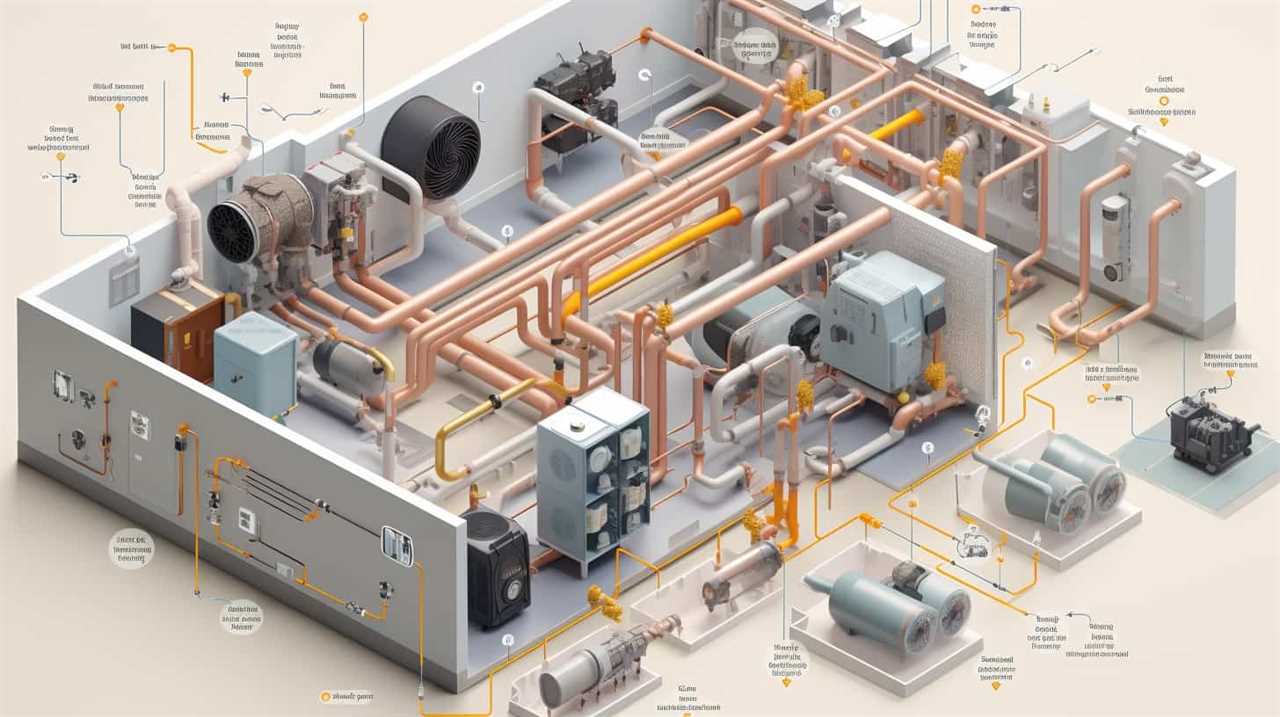
Traditional heating systems, such as gas or oil boilers, rely on burning fossil fuels which release carbon dioxide into the atmosphere, contributing to climate change. In contrast, eco-friendly heat pumps operate by transferring heat rather than generating it, resulting in significantly reduced carbon emissions.
According to studies, heat pumps can reduce carbon emissions by up to 50% compared to conventional heating systems. This reduction in greenhouse gas emissions plays a crucial role in mitigating climate change and achieving a more sustainable future.
Comfort and Indoor Air Quality: the Improved Comfort and Air Quality Benefits of Eco-Friendly Heat Pumps
For homeowners, the improved comfort and air quality benefits of eco-friendly heat pumps become evident immediately after installation. These heat pumps not only provide efficient heating and cooling, but they also contribute to a healthier and more comfortable indoor environment. Here are the key benefits:
Improved Health: Eco-friendly heat pumps help maintain a consistent temperature and humidity level, reducing the risk of mold, allergens, and respiratory issues. This promotes better respiratory health and overall well-being.

Energy Savings: By utilizing renewable energy sources, such as geothermal or air-source heat pumps, homeowners can significantly reduce their energy consumption and lower utility bills. This not only benefits the environment but also saves money in the long run.
Enhanced Comfort: Eco-friendly heat pumps offer precise temperature control and even distribution of heat or cool air throughout the home. This eliminates hot and cold spots, ensuring a comfortable living environment for all occupants.
Investing in eco-friendly heat pumps not only saves energy and money but also improves the health and comfort of your home.
Long-Term Durability: the Longevity and Reliability of Eco-Friendly Heat Pumps for Sustainable Homes
With proper maintenance and regular inspections, eco-friendly heat pumps can provide homeowners with long-term durability, ensuring their longevity and reliability for sustainable homes.
The longevity benefits of eco-friendly heat pumps stem from their advanced technology and high-quality components. These heat pumps are designed to withstand rigorous usage and harsh environmental conditions, making them a reliable choice for homeowners seeking sustainable solutions.
The reliability advantages of eco-friendly heat pumps can be attributed to their efficient performance and minimal downtime. By utilizing renewable energy sources such as air, water, or ground heat, these heat pumps reduce dependence on fossil fuels and contribute to a more sustainable future.
Additionally, eco-friendly heat pumps are engineered to deliver consistent and reliable heating, cooling, and hot water supply throughout the year, ensuring a comfortable living environment for homeowners while minimizing energy consumption.
Frequently Asked Questions
Are There Any Government Incentives or Rebates Available for Installing Eco-Friendly Heat Pumps in Sustainable Homes?
There are government incentives and financial assistance available for installing eco-friendly heat pumps in sustainable homes. These incentives provide a cost-effective solution for homeowners and contribute to the overall goal of creating a more sustainable future.
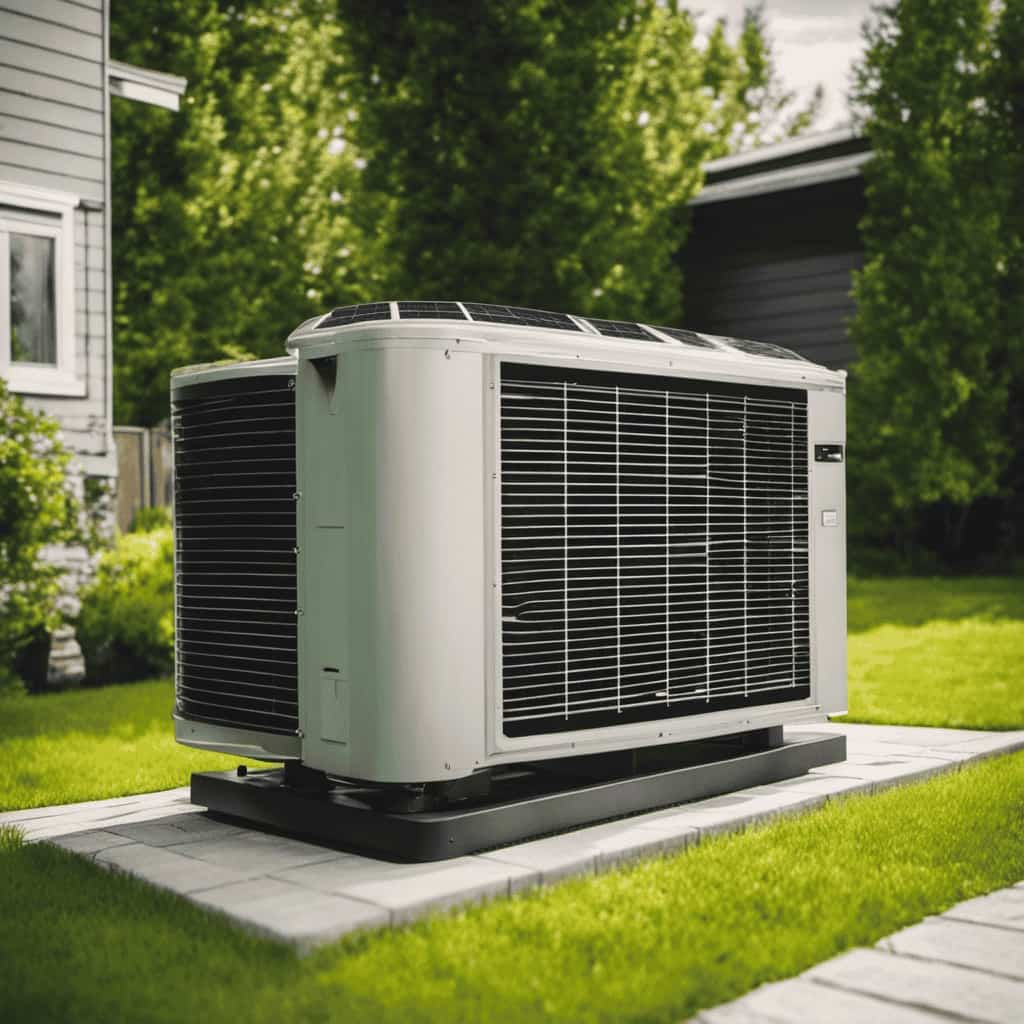
Can Eco-Friendly Heat Pumps Be Used in All Types of Homes, Including Older or Historic Buildings?
Yes, eco-friendly heat pumps can be used in all types of homes, including older or historic buildings. There are benefits to retrofitting older homes with eco-friendly heat pumps, and they can also be incorporated into new construction.
How Do Eco-Friendly Heat Pumps Compare to Traditional Heating and Cooling Systems in Terms of Maintenance Requirements?
When comparing eco-friendly heat pumps to traditional heating and cooling systems, we find that they require less maintenance. This means they are more energy efficient and cost effective in the long run.
Are There Any Potential Health Risks Associated With Using Eco-Friendly Heat Pumps, Such as Exposure to Refrigerants or Allergens?
There are potential health risks associated with using eco-friendly heat pumps, such as exposure to refrigerants. However, proper installation, maintenance, and ventilation can greatly reduce these risks and ensure a healthy and safe environment for sustainable homes.
Can Eco-Friendly Heat Pumps Be Used in Conjunction With Other Renewable Energy Sources, Such as Solar Panels or Wind Turbines, to Further Reduce Energy Consumption and Carbon Emissions?
Yes, eco-friendly heat pumps can be integrated with other renewable energy sources like solar panels and wind turbines to further reduce energy consumption and carbon emissions. This integration enhances the sustainability and efficiency of the overall energy system.
What Are the Environmental Benefits of Heat Pumps for Climate Control?
Heat pumps offer a multitude of environmental benefits for climate control. By harnessing the energy present in the air or ground, these systems minimize reliance on fossil fuels, significantly reducing carbon emissions. Additionally, they are highly efficient, using minimal electricity to transfer heat from one area to another. This not only saves energy but also lowers utility bills. Embracing the benefits of heat pumps for climate control is an important step in prioritizing sustainability and combatting climate change.
Conclusion
In conclusion, eco-friendly heat pumps offer a multitude of benefits for sustainable homes. These efficient systems not only reduce energy consumption, resulting in cost savings, but also contribute to the reduction of carbon emissions, promoting a greener environment.
Additionally, they enhance comfort levels and indoor air quality, ensuring a healthier living space. With their long-term durability, eco-friendly heat pumps prove to be reliable solutions for sustainable homes, providing a reliable and efficient heating and cooling option for years to come.
-

 Residential and Commercial Applications1 week ago
Residential and Commercial Applications1 week agoBest Amana Heat Pump Reviews
-

 Thermal Energy Transfer2 weeks ago
Thermal Energy Transfer2 weeks agoBreakthroughs in Modern Heat Pump Systems: Thermal Energy Edition
-

 Residential and Commercial Applications1 week ago
Residential and Commercial Applications1 week agoBest Heat Pump
-

 Geothermal Heat Pumps3 months ago
Geothermal Heat Pumps3 months agoUpgrade Your Comfort with Our Efficient HVAC Systems
-

 Air Conditioning2 months ago
Air Conditioning2 months agoExploring Energy-Efficient Air Conditioning Heat Pumps
-

 Geothermal Heat Pumps3 months ago
Geothermal Heat Pumps3 months agoInnovative Geothermal Heat Pump Manufacturers Revolutionize Energy Efficiency
-

 Thermal Energy Transfer1 month ago
Thermal Energy Transfer1 month agoBoost Your Heat Pump Efficiency: Interactive Guide
-

 Residential and Commercial Applications1 week ago
Residential and Commercial Applications1 week agoBest Portable Heat Pump Heat & AC










